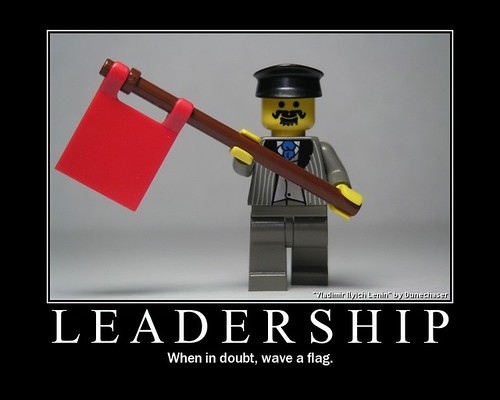Both
GMP and
Pika have posts about being frequently barraged about "where they're from" due to having accents not frequently heard in the places they live. Both posts discuss how to deflect conversations when the questioners seem to lose all sense of social graces and just start acting dumb.
As a native English speaker I fortunately haven't encountered this problem, and the only other foreign language I speak people are far too nice and socially conscious to ask such questions. However, I think the "where are you from?" question belongs to a larger issue, and that is the case of being
Other.
When you are
Other, due to nationality, gender, ethnic background, socioeconomic status, disability status, parental status, marital status, sexual orientation, (and countless other things), some people find themselves unable to restrain themselves and feel like they must point out that you are
Other.
I find this usually happens in one of two ways - either someone is over-the-top direct in their comment, or they attempt to be indirect and bury themselves in the ground faster than you can say "shovel".
An example of the direct case. I am sitting with a large group of male computer scientists. Someone makes a comment about the lack of women in technology, and the sea of male faces turn to me expecting an Insightful Comment about the topic. I don't always have a good answer, and may feel a bit uncomfortable being asked to
represent all women, but I generally don't mind because usually these commenters have good intentions.
The indirect case is what drives me nuts. This is when you can tell the person is feeling extremely uncomfortable about
The Others, but isn't really aware that they're uncomfortable, and just starts talking talking talking, oblivious to the hole they are digging and the sea of uncomfortable faces around them.
For example, I was once at a conference that happened to have a fair number of women in attendance. Not the majority, or even half, but certainly more than at most CS conferences. At one break I was chatting with a female friend, and this older, caucasian man joins the conversation. He says, "Wow! There are a lot of women here. I'll tell you, I sure feel like a minority at this conference."
Recently I was at a large gathering of engineers. The gender mix was ok (though I'm not sure how many women were engineers and how many were spouses), but the racial mix was pretty abysmal. I saw a few people of east asian decent, and two people of african descent, but that was it.
Early at the gathering I found myself in a group chatting with three caucasian men: Emeritus professor (EP), career postdoc (CP), and my friend. EP asks my friend where he's from. My friend tells him he's from Southern State. EP starts talking about how he visited a city in an adjacent Southern State, and starts talking about how he rode the subway there. Then he says, "It was amazing. I got on the subway, and I was the only white man there. Everyone was black. I felt so uncomfortable."
And he keeps talking. And talking. And talking. And keeps looking over at me to make some kind of comment. Then CP attempts to help(?) this conversation by slightly changing the topic to once while traveling being lost in a bad neighborhood where people were shooting up heroin. Then EP starts to talk about his other travels, and says that his son married "a girl" from a southeast asian country, and how when he visits her family there ("who are lovely, by the way"), he is often the only white person.
At this point I want to punch the guy, but more importantly I don't want the
Others at this party to overhear EP running his mouth. They deal with this crap every single day, perhaps are even already dealing with this at this party. So I loudly interrupt his diatribe.
"SO! I HEAR YOU DO OPTICS RESEARCH?"
He happily switches to talking about lasers, and all is right in the world again.
So in short, my approach to dealing with clueless people who seem to be unable to control their mouths is to change the topic, bluntly and directly if need be, back to science, the weather, sports, movies; whatever neutral topic I can think of. If they are so clueless that they don't understand my deflection and continue to make rude remarks about
Otherness, I keep trying to change the topic. If they still don't get it and it's someone I need to interact with frequently, sometimes I'll pull them aside and say, "Please stop talking about X. It's unprofessional and makes me feel like an
Other."









